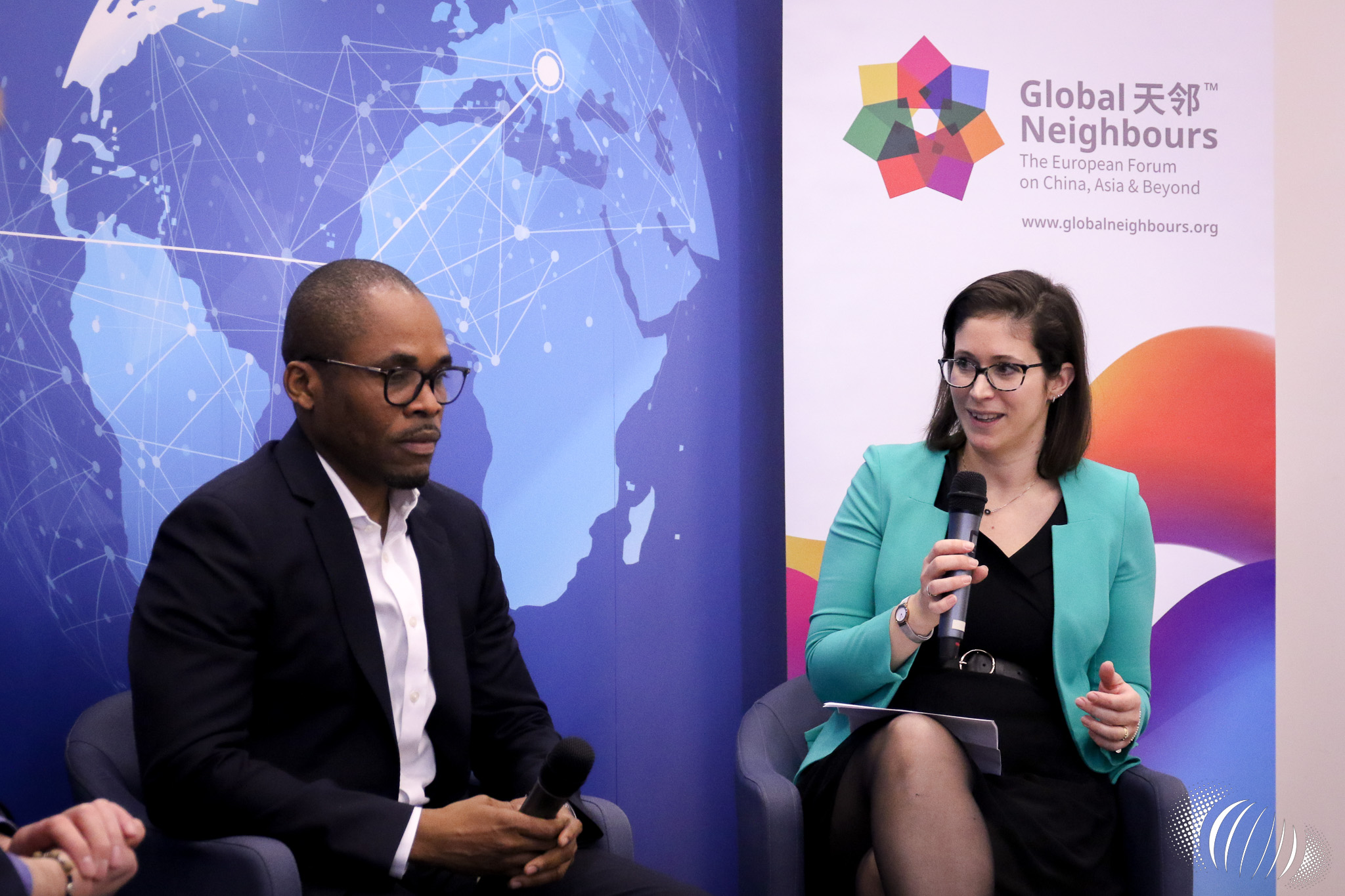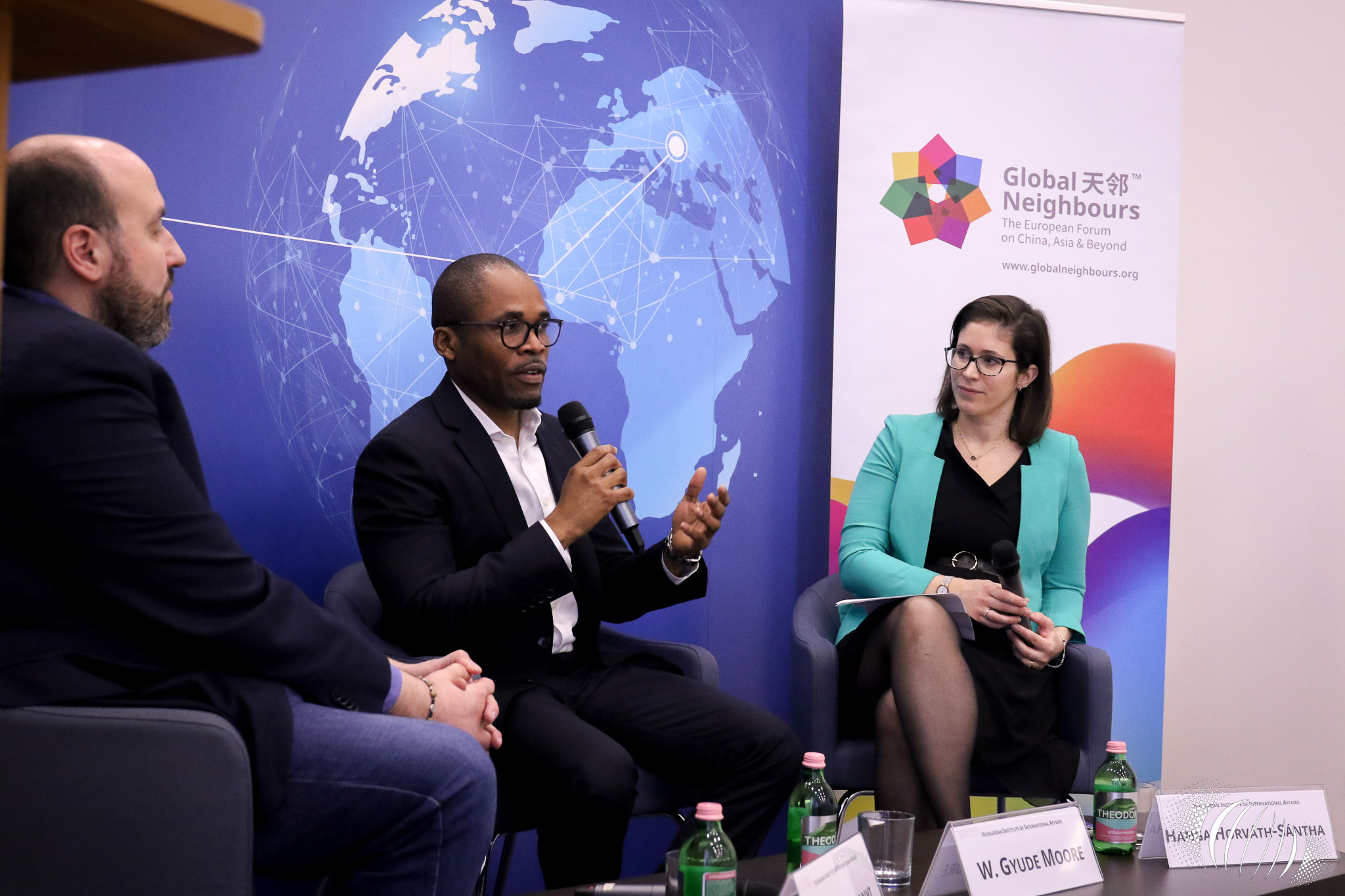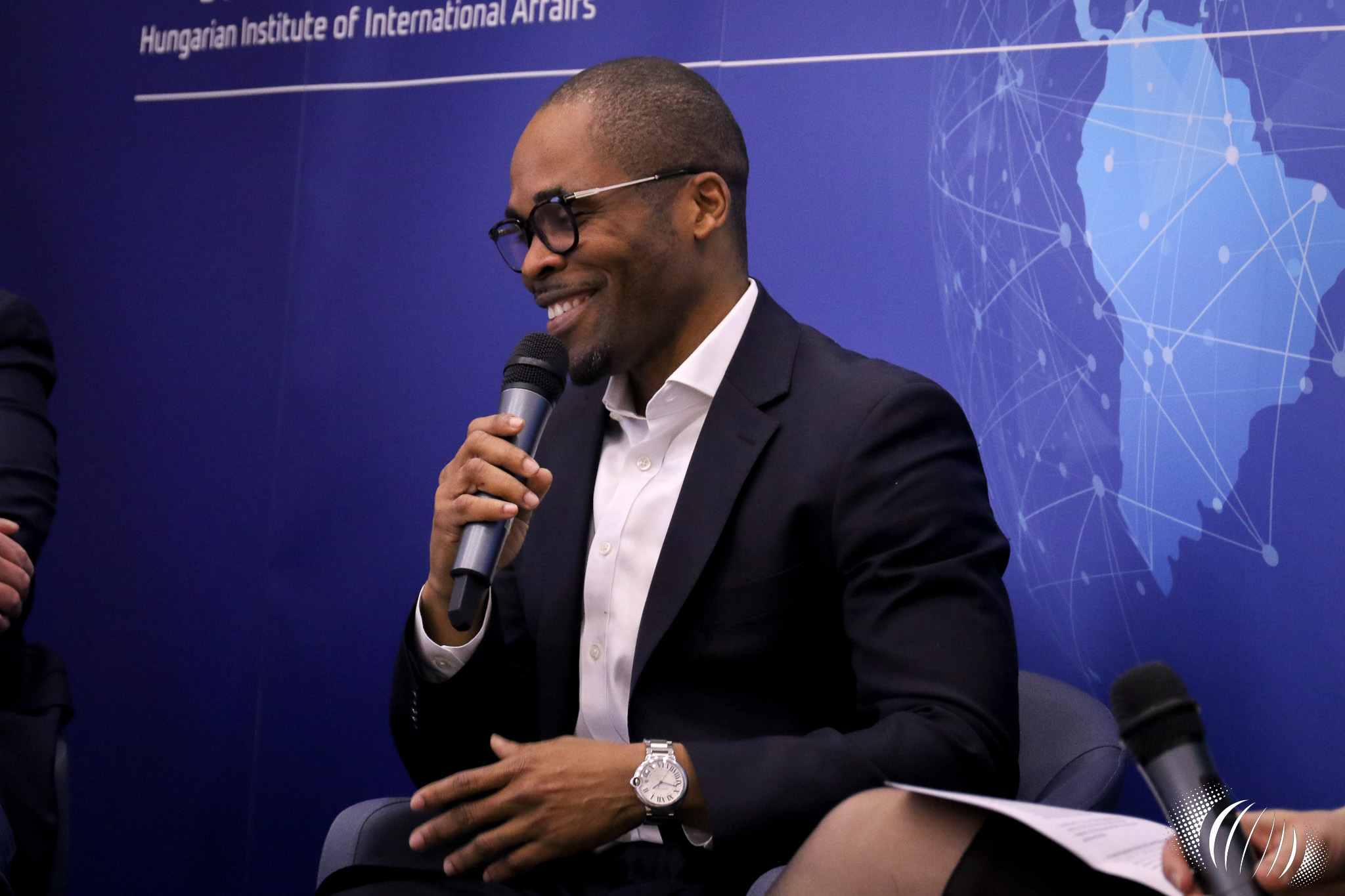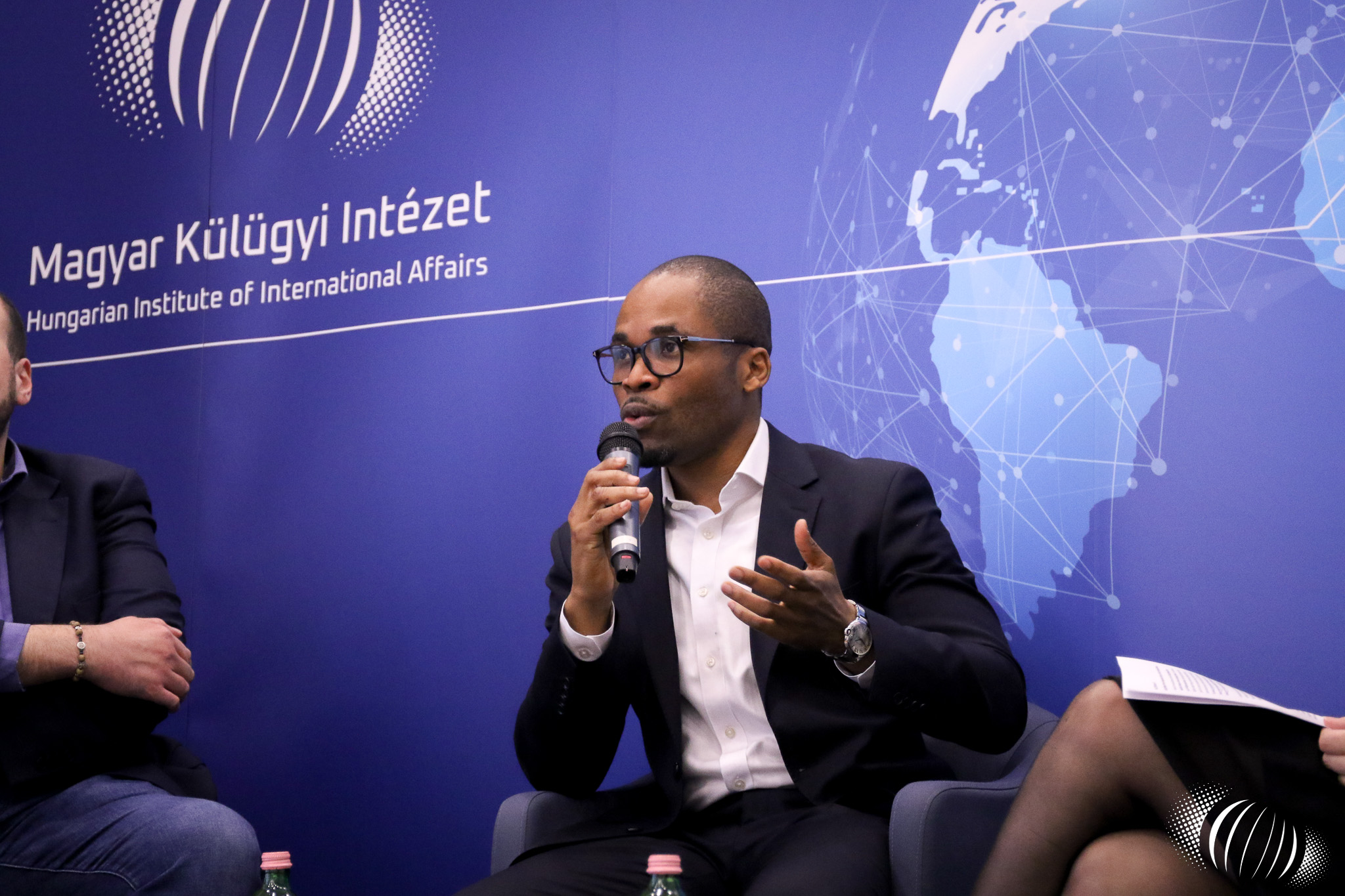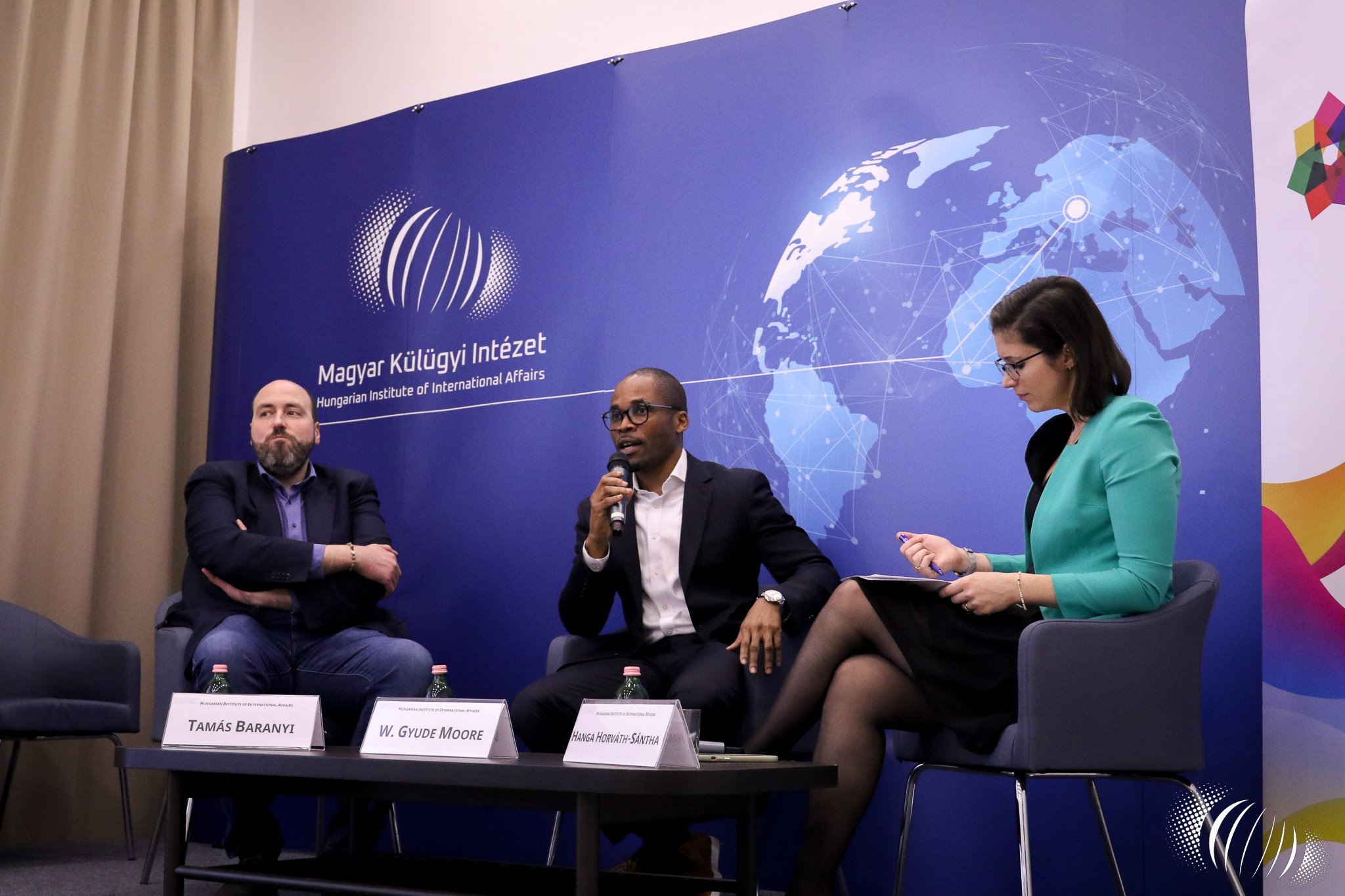On February 11, 2025, the Hungarian Institute of International Affairs (HIIA) held a roundtable discussion titled, “Building Bridges: Africa’s Geopolitical Position in a World of Expanding Influence.” The panelists included W. Gyude Moore, Inaugural Visiting Fellow at Global Neighbours and former minister of public works of Liberia, and Tamás Baranyi, Director for Strategy at HIIA. The discussion was moderated by Hanga Horváth-Sántha, Senior Research Fellow at HIIA.
The discussion began with W. Gyude Moore reflecting on the period immediately after the end of the war in Liberia. The entire country had to be rebuilt, and the government had an annual budget of only 80 million dollars. Infrastructure development was needed, but these investments were difficult to defend politically. The Port of Monrovia, for example, which cost hundreds of millions of dollars to rebuild, was never seen by the average voter. It was, however, a crucial investment because it enabled the country to trade internationally. While the period was challenging, it gave Liberians a good sense of how to handle challenges and successfully build a state. This paid off later when the country experienced an Ebola outbreak—the first in West Africa or in such an urban environment.
W. Gyude Moore noted that the last 500 years of African history has been marked by the presence of external actors on the continent: Arabs, Turks, Europeans, Americans, the Chinese, and Indians, among others. In recent years, Western attention has been on soft issues like education and healthcare rather than on infrastructure development or other economic investments. The Chinese, in particular, have stepped in to fill this void. Chinese companies offer lower prices for the same quality as Western ones, are willing to lend to African countries for projects that are seen as too risky in the West, and generally hire a large number of African employees—more than Western or other foreign companies typically do. Through cooperation, African countries are able to develop their infrastructure, while China is able to secure the critical raw materials that its economy needs.
Tamás Baranyi emphasized that Europe is losing ground in Africa and missing out in the “new scramble for Africa,” despite the continent’s close proximity and the professionalism of some of its governments. In recent years, Europe has been a policy taker rather than a policy maker, following the lead of the U.S. instead of developing its own strategy. More cooperation with Africa could be key for improving declining European competitiveness. Hungary is currently looking for partners around the world, diversifying its economy because the more diverse partners you have, the better, cheaper, and safer outcome you get. There has been interest in Africa, but Hungary’s penetration on the continent is not as extensive as in the Middle East or South Asia.
W. Gyude Moore suggested that the relationship between Europe and Africa could be reimagined. Most European companies operating in China are in China for Europe—they take advantage of the Chinese market to produce goods cheaply and then sell these goods back to Europe. A similar strategy can be employed in Africa, and it’s already happening. This year, Morocco plans to export one million vehicles to China, and most are made by European manufacturers that have set up shop in the country. A free trade zone that lifts inter-African tariffs but raises external tariffs could be a way to encourage European companies to move to the continent, since these companies will want to produce locally to circumvent tariffs. Good infrastructure, however, is necessary for making this happen, and the Chinese are the ones investing in it.

